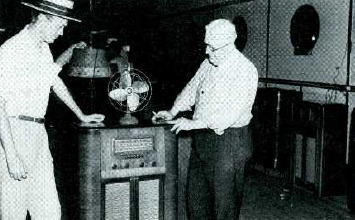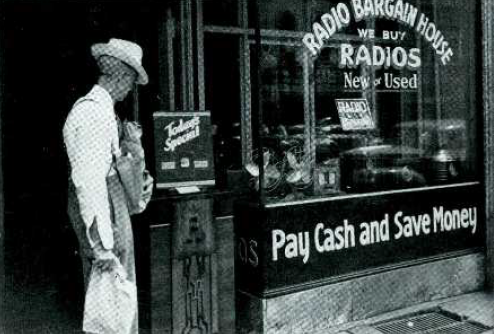Seventy five years ago this month, Pearl Harbor was still a month away, and the end of civilian radio production was still five months away. But radio retailers were starting to feel shortages, since many parts were in short supply due to wartime material priorities, and in some cases, the numbers of new sets available didn’t meet demand.
This led many retailers to take a closer look at selling used sets. Trade-ins were often viewed as a headache, and little effort was made to realize a profit from them. But the wartime economy made many retailers consider selling used radios. The November 1941 issue of Radio Retailing carried advice from the experience of M.M. Law, the proprietor of Radio Bargain House of Birmingham. Law got into the radio business by accident when running a hotel. A hotel guest turned a radio over to him for sale, and he placed a classified ad in the paper. He received fifteen calls in response to the ad. When he eventually lost the lease on the hotel, he decided to get into the radio business.
 Law typically made a net profit of about $2 on each set. He often bought in bulk from other dealers looking to unload their trade-ins, sometimes as low as $1 per set. He typically invested about $3 fixing up each set, and quickly sold many for $6.95. He estimated that his average sale was between $12 and $15.
Law typically made a net profit of about $2 on each set. He often bought in bulk from other dealers looking to unload their trade-ins, sometimes as low as $1 per set. He typically invested about $3 fixing up each set, and quickly sold many for $6.95. He estimated that his average sale was between $12 and $15.
He continued advertising in the classified ads, since his experience was that this was where bargain shoppers looked. He always kept a set outside his shop, marked “today’s special,” and reported that he would often sell this set, with the buyer not bothering to look for others. In other cases, however, the set outside would entice a buyer to come in the store to buy a better set on the floor.

